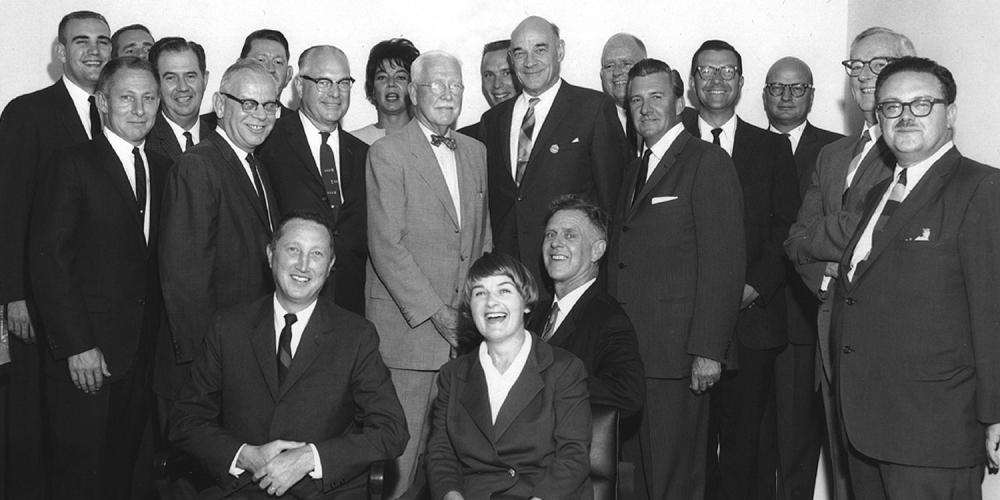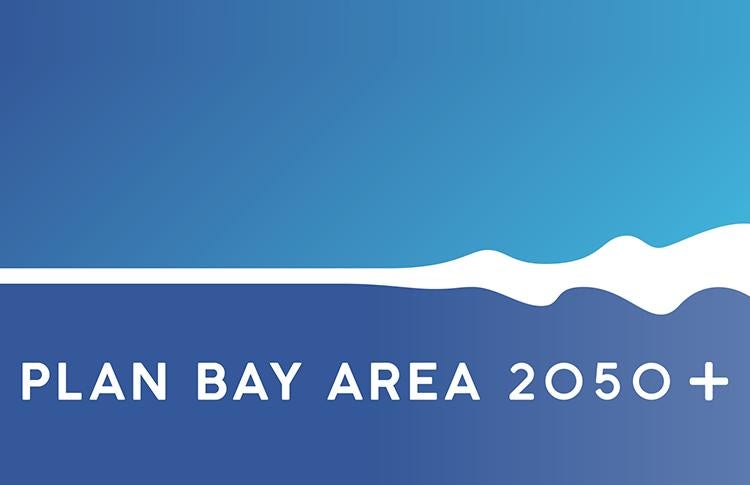
History
The Association of Bay Area Governments (ABAG) is the comprehensive regional planning agency and council of governments for the nine counties and 101 cities and towns of the San Francisco Bay region.
ABAG was formed by local government leaders who recognized the need to address common issues from a regional perspective, and formed the first council of governments in California. From this perspective, ABAG continues to work in regional land use, environmental stewardship, energy efficiency and water resource protection.
Today, ABAG and and the Metropolitan Transportation Commission (MTC) continue to share joint responsibility for Plan Bay Area, now with a single staff, serving both the ABAG Executive Board and the MTC Commission. There is an opportunity for ABAG to provide a stronger commitment, additional staff and an expanded financial position to carry out the important work of supporting local governments and the region.
Agency Timeline
1961
Bay Area local governments came together as a response to state legislation that would have supplanted local control over all bridges, ports and transit operations.
To address land use issues from a regional perspective, elected officials from the Bay Area formed a council of governments called the Association of Bay Area Governments. Since inception, ABAG has examined regional issues such as housing, transportation, economic development and the environment.
1970
ABAG broke ground developing the Regional Plan, 1970–1990, the Bay Area's first comprehensive regional plan.
1980s-1990s
In response to shrinking local government budgets and increasing needs, ABAG created a number of service programs to assist local governments with financing, natural gas purchasing and energy efficiency programs. Critical environmental and resilience challenges led to the San Francisco Estuary Partnership, the San Francisco Bay Trail Project and the Resilience and Hazards Program.
1994
ABAG was the first council of governments on the internet, and the second public agency to establish a web presence in California.
2008
With the passage of SB 375, ABAG and MTC were tasked to produce a new combined land use and transportation long-range plan for the San Francisco Bay Area, while reducing the amount of greenhouse gas emissions from cars and light trucks.
The two organizations had already worked closely together since MTC’s inception in 1971, with ABAG providing land use information and other economic forecasting data to MTC for transportation planning needs.
2013
The first SCS, known as Plan Bay Area, tackled pressing issues such as accommodating population growth while keeping the region affordable for all residents, preserving open space, protecting the environment, accommodating transportation needs and reducing greenhouse gas emissions.
2016
By an action of the ABAG governing body, ABAG and MTC were tasked to conduct a staff consolidation study and then examine changes to both the governing bodies. The end result is two separate and independent organizations with a consolidated staff at MTC serving both governing boards.
2017
ABAG and MTC released an update to Plan Bay Area, called Plan Bay Area 2040. Staff consolidation occurred in July 2017 after a year-long process, including fiscal analysis, human resource and organizational development consulting and extensive member participation.
Today
ABAG and MTC continue to share joint responsibility for Plan Bay Area, now with a single staff, serving both the ABAG Executive Board and the MTC Commission. The latest iteration of the plan — Plan Bay Area 2050 — was jointly adopted in October 2021. Work has begun on its limited and focused update, Plan Bay Area 2050+.
There is an opportunity for ABAG to provide a stronger commitment, additional staff and an expanded financial position to carry out the important work of supporting local governments and the region.
How We Govern
ABAG is part regional planning agency and part local government service provider — performing a broad range of activities for its members. Find out how we govern.


